|
|
| |
| |
 |
About the project
|
| |
|
SENSES - STRENGTHENING SOCIAL ENTREPRENEURIAL LANDSCAPE THROUGH INVOLVING SOCIALLY RESPONSIBLE CORPORATE PRACTICES IN ENTREPRENEURIAL COMPETENCES AND SKILLS ENHANCEMENT IN THE DANUBE REGION
   
|
|
| |
 |
Project Objectives
|
| |
|
1. Empowering SEs through bridging public & private sector best practices
2. Better engaging SEs with their ecosystems
3. Creating an improved policy landscape for SE
|
|
| |
 |
SYNERGIES WITH OTHER PROJECTS - THEMATIC POLE 3 ENTREPRENEURIAL LEARNING SYSTEM
|
| |
|
| |
 |
Project news
|
| |
|
This reporting period saw a very intense activity toward connecting social enterprises with socially responsible companies. All partners continued with the implementation of offline trainings for social enterprises, the pitching activities between socially responsible companies and social enterprises and implementing Regional Action Plans.
|
|
| |
 |
PITCHING EVENTS
|
| |
|
| |
 |
PITCHING EVENT IN AUSTRIA
|
| |
 |
|
On March 1st 2019 eight Austrian social entrepreneurs took the opportunity to present their social enterprise, their mission and aims in front of other social enterprises and CSR representatives of traditional companies:
There was a strong interest in the different business ideas, which lead to inspiring discussions and the sharing of contacts.
|
|
| |
 |
PITCHING EVENT IN HUNGARY
|
| |
|
In Hungary we have organized two pitching events. The first one was connected to the off-line training program.
NESsT organized a series of training programs for social entrepreneurs at the end of 2018 and early 2019. The content of the off-line course followed the tematics – 6 modules - of the on-line curricula which has been developed by SENSES partners under the leadership of NESsT.
The first pitching occasion was held on 7th of March and provided opportunity for the former participants of the off -line training course to present their business model in front of an expert jury, this way it was an additional learning experience to get feedback besides of the trainers’ opinions. This time the on-line platform was already operating in a testing mode, so this was an opportunity to ask the training participants to register on the platform, to use the content as an additional resource after the training course to deepen their knowledge and to provide feedback for us while they were preparing to the pitching.
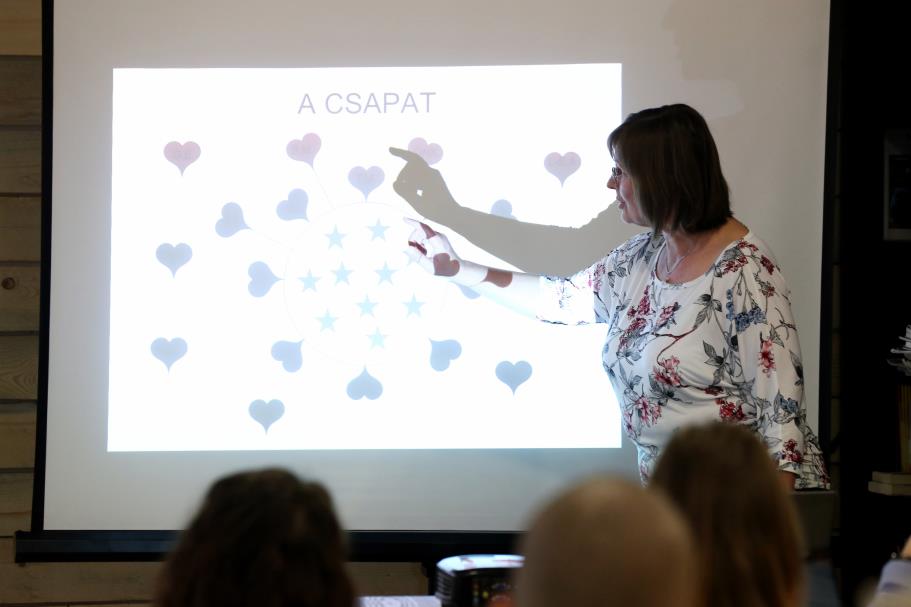
Both pitching had the same structure: the applicants got an on-line material to help them to prepare their presentations, which they sent for an early feedback to NESsT mentors. Then, in the morning of the pitching day they had 2 hours one-on-one mentoring session when they finalized their presentations. This time the mentors came from outside with different backgrounds – marketing, finance, communication – and we have paired them with the pitchers to find the best fit for their learning and developing.
On March 7th there were 6 pitching social enterprises, two from Budapest, the others from countryside. The organizations have a wide range of activities, agricultural production, wood workshop, tourist services, activity and services for the environmental sustainability, healthy food, services and production for healthy and specific diets. The organizations serve different types of beneficiaries, the most difficult task is the work integration of mentally disabled young people in countryside. The jury members were representing successful social businesses and CSR focused big businesses, including a socially responsible bank and one consulting firm. There were more than 25 participants, many of them former participants of the training course and everybody learned a lot from the pitching.
The second pitching was organized jointly with the lead project partner, IFKA on 11th of April, when the platform was already operating in “full speed”. This time the applicants were the direct platform users. the pitching opportunity was very popular, we had to reject applicants because of the time limit. We have organized the event in the same way as the first one, with morning mentorship and afternoon presentation. This time we had seven pitchers and 7 members jury, with similar background as the first time.
The pitchers of the second occasion represented a wider range of social entrepreneurs in size, and now all of them came from the countryside, their majority even from small villages. It made us very happy to see, that the social economy in Hungary is full of committed people who not only fell responsibility for the local social problems, but evidently can help to generate social impact with their activities.

All the pitching social entrepreneurs reported, that they have learned a lot, it was a great experience to present before people they can not meet otherwise, and first of all they appreciated the supportive atmosphere of all the experts and the audience.
It is worth mentioning, that in the two pitching events the majority of the mentors and jury members represented well known big companies like Boston Consulting Group, Accenture, Unicredit Bank, Erste Bank, and even we had a jury member from the Ministry of Finances, whose job there to develop social economy, to support social entrepreneurs in Hungary. All the mentors and jury members reported that meeting face-to face the enthusiastic, well prepared social entrepreneurs, to hear their commitment and professionalism was a very important experience for them.
|
|
| |
 |
PITCHING EVENT IN SERBIA
|
| |
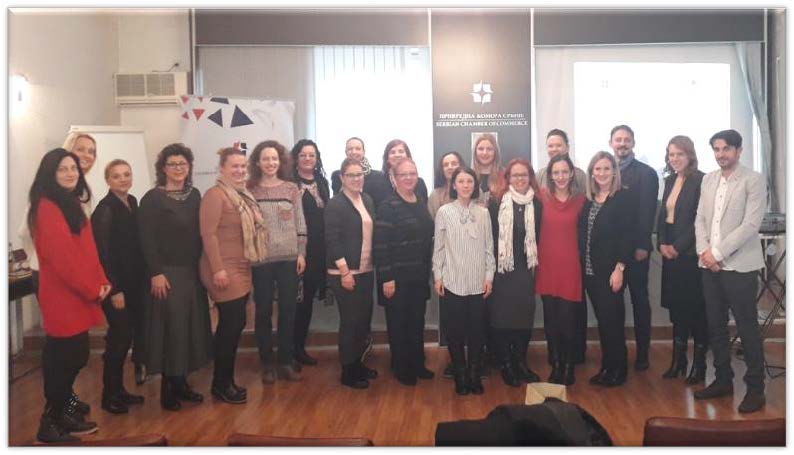 |
| |
|
In Serbian Chamber of Commerce, after a successful four day „SENSES workshop“ dedicated to development of skills of social enterprises, a final presentation of business ideas of the participants was held in front of the jury members.
The jury consisted of representatives of NGOs, companies, associations and state organizations, which are recognized for their long-standing support to socially responsible and social enterprises. Representatives of Trag Foundation, Smart Collective, Delta Holding, Office for Cooperation with Civil Society and the Serbian Chamber of Commerce.
The jury had the opportunity to hear many good, new proposals for starting a business, and representatives of social enterprises had the opportunity to present their ideas in the right way and to get suggestions for improvements necessary for further growth and development.
Fifteen social enterprises participated in the event, and they were evaluated on the basis of the authenticity of the ideas they presented, the degree of positive impact that the idea has on society, the feasibility / commercialization of the idea, the individual's capacity to implement the idea (knowledge and qualifications), and the public presentation aspects was also counted.
Three of the best business ideas by all criteria came from Bagel Beigla, Shirko Metal and Artysh Lab Art Association. The initial ideas presented by Mika Toys and Creative Studio Kvart from Belgrade were especially awarded.
|
|
| |
 |
PITCHING EVENT IN SLOVAKIA
|
| |
 |
|
The final part of the training session of the Slovak social entrepreneurs was the pitching event at the Slovak Business Agency (April 9th, 2019). 8 social innovators were given the opportunity to present their business plans in front of the social investors. The list of presenters was varied both in business areas and positive social impacts. Representatives of Slovenská sporiteľňa (the ERSTE Group), Social Innovators and Investeers became the jury members. Congratulations to all for their professional attitude and particularly to the absolute winner from Kakaw Co+, who could look forward to free mentoring by Investeers. Kakaw Co+ sells high quality cocoa products that contributes to the peace and prosperity in Colombia. They import, distribute and sell the exceptional "fino de aroma" cocoa beans full of magical cocoa butter and antioxidants. The basic principles of their activities are adequate working conditions for Colombian growers and at the same time ensuring high quality products for conscious customers.
|
|
| |
 |
E-LEARNING PLATFORM
|
| |
|
| |
 |
STRONG SUPPORT TO SOCIAL ENTREPRENEURSHIP IN THE REGION- E LEARNING PLATFORM (SERBIA)
|
| |
|
With aim of implementing entrepreneurship principles to strengthen the social economy environment in Serbia, Chamber of Commerce and Industry of Serbia conducts projects SENSES and Finance4SocialChange together with international partners from Austria, Hungary, Slovenia, Croatia, Romania, Slovakia and rest of the Danube region countries.
Online education course for future social entrepreneurs created to develop their social skills is one of the SENSES project results. This training offers practical knowledge for social entrepreneurship beginners, as well as tools for those who want to upgrade their businesses strategically: mapping social groups, developing new sales channels and reaching new markets. Modules cover marketing, finance, sales, management, human resource and intellectual property.
Materials and presentations are in English, but also translated to 7 partner countries languages.
Besides the fact that role of social entrepreneurship becomes more and more recognizable every day, several Danube region countries still don’t have appropriate legal frameworks and financial instruments to facilitate the business in this area.
According to national market analysis and available financial instruments, social companies have limited source of financing such as donations and sponsorships. Business development is mostly financed through selling of their own products/services.

The biggest challenges for this economy sector development are the lack of financial instruments adjusted to the needs of social entrepreneurs in Serbia and regulatory framework for non-banking source of finance. Serbia is the only European country where economy is financed mostly through commercial bank credits that represent over 92% of the financial sector. According to the data of European Commission, in EU countries this rate doesn’t go over 70%.
Finance4SocialChange project develops practical solutions on impact investing to better shape the regulatory framework for the proper functioning of the social financing sector in the Danube region. This project works towards creating the first "Social Impact Investment Strategy for the Danube region paving the way for promoting more social innovations and social impact investment ready social enterprises.
|
|
| |
 |
REGIONAL ACTION PLAN
|
| |
|
| |
 |
SOCIALY RESPONSIBLE PUBLIC PROCUREMENT
|
| |
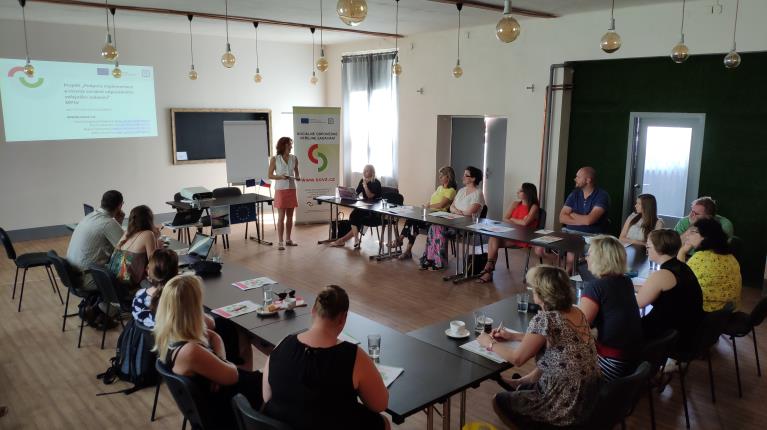 |
|
In June RERA organized two seminars with a focus on Socially Responsible Public Procurement as part of its action plan. Seminars were organized in collaboration with experts from the Ministry of Labour and Social Affairs of the Czech Republic in order to deliver a high-quality session. The first seminar focused on the contracting authority while the second focused on suppliers. In both events, participants got familiar with elementary, yet complex insight into the world of responsible public procurements, with legal aspects of the procedure, with examples of good practice and more. Participants also had a chance to bring their own procurement proposals and consult a specific material with the experts. While the session for suppliers was attended mostly by social enterprises, the session for contracting authority by representatives of towns, municipalities and public institutions from the whole region.
|
|
| |
 |
TEACHERS ARE READY FOR KNOWLEDGE TRANSFER
|
| |
|
Public Institution REDEA has organized a webinar and a study visit for secondary school teachers according to Regional Action Plan for Croatia. In April teachers from Croatia had a chance to be a part of a first organized webinar about social enterprises that gave them the right knowledge and different ways to pass it on students. We have acquainted them with the SENSES e-learning platform that they can use in the classroom.
We have also planned a study visit so that teachers would get to really know the social enterprises and talk with the people that work there. Teachers from North Croatia have visited social enterprise Humana Nova, marketing agency Brodoto, Fierce Women and participated in tour Invisible Zagreb that is guided by Mr. Mrvalj, a former homeless man.
|
|
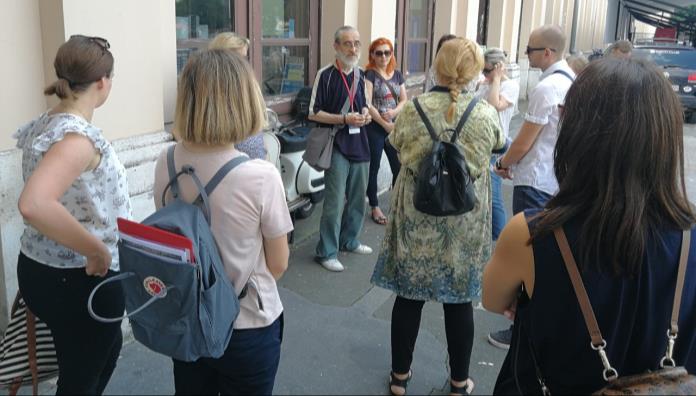
|
|
| |
 |
EMPOWERING SOCIAL ENTERPRISES
|
| |
|
| |
 |
MEET-UP WITH SOCIAL ENTERPRISES IN SERBIA
|
| |
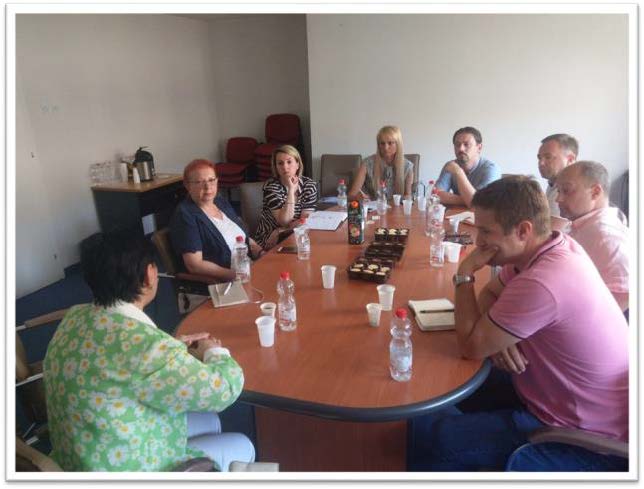 |
|
Chamber of Commerce and Industry of Serbia has organized meet-up with social enterprises with aim of informing them on current activities and results from the project SENSES as well as further activites envisaged within the project Finance4SocialChange.
Social Enterprises in Serbia present an emerging market segment with social added-value. Therefore, they are in need of strong institutional and business support. The meet-up was an occasion to listen to their challenges and future plans and also to present available support they can get in the Chamber of Commerce and Industry of Serbia. „ Nasa kuca“, „ Bioidea“, „Caritas“, „Eko bag“ who have been actively participating in activities of Project SENSES, in trainings, bilateral meetings, conference and stakeholder groups have concluded that support given within the scope of the projects has been valuable and that it has been a great opportunity for networking, capacity building and establising new business contacts.
|
|
| |
 |
TITBIT RESTAURANT
|
| |
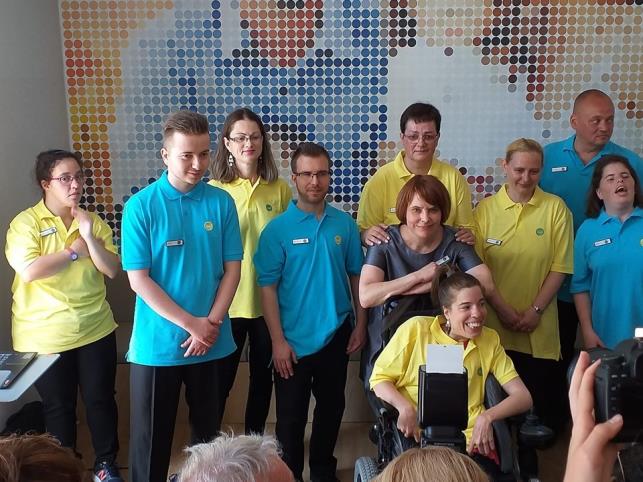 |
| |
|
Titbit restaurant (Ízlelő in Hungarian) is a restaurant in small town, Szekszard, Hungary where the staff members are people living with different kinds of disabilites. The restaurant was one of the Hungarian case studies we have shared in SENSES project, and we have recorded several videos about them, too, as best practice in Hr and financial management supporting this way the on-line curricula on social entrepreneurship.
June 12 was a special day in the life of the social enterprise, they opened their second restaurant this time in Budapest. The new venue is located in the building of the municipality of the XII. district, thanks to the major who understanding the importance of the social enterprise provided the space. However, it has been a long, difficult journey to reach the opening. The social enterprise needed funding to convert the office spaces to an accessible restaurant, they needed support to recruit and train the beneficiaries to become waiters and cooks, and they needed lots of effort and patience to arrive to the moment when everything was ready to serve the first customers.
From June 12 people in the neighborhood, and even in further distance can come and experience that disabled people can work, can be useful parts of the society. Customers of the restaurant can spread their experience, and the Titbit restaurant will be an example that every person deserves opportunity to live a full life. Congratulations to Andrea Mészáros and her staff and supporters!
|
|
| |
 |
REGIONAL EVENT "HOW SOCIAL ENTERPRISES CAN CONTRIBUTE TO THE ACHIEVEMENT OF SUSTAINABLE DEVELOPMENT GOALS" IN SLOVENIA
|
| |
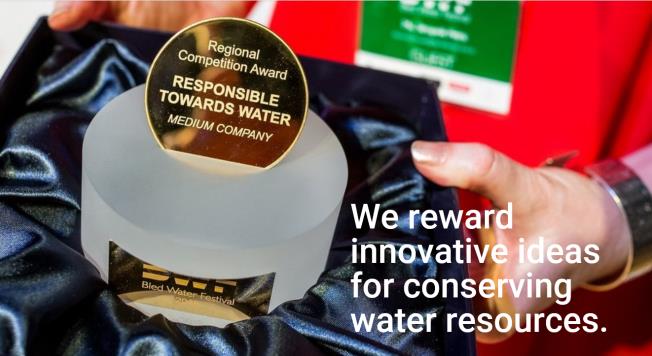 |
|
Regional development agency Gorenjska – BSC Kranj has, in the framework of the SENSES project in the mid of June 2019, organized a conference on "How social enterprises can contribute to the achievement of sustainable development goals". The conference was organized in Bled and was associated with Bled Water Festival, taking place at the same time in Bled. On the conference also the examples of good practices of social enterprises were presented and some conclusions made. Social enterprises are becoming an increasingly important part of the economy and make an important contribution on achieving the goals of sustainable development. With their products and services, they already offer solutions that contribute to the preservation of the environment, solving the challenges in the social and wider social field. That is why social enterprises are becoming an important partner and an opportunity for municipalities and their public services in the field of environment, social life, and spatial development to develop new sustainable solutions and thus provide a better-quality living environment for the citizens.
|
|
| |
 |
CENTRE FOR INTEGRATED CARE AT HOME
|
| |
|
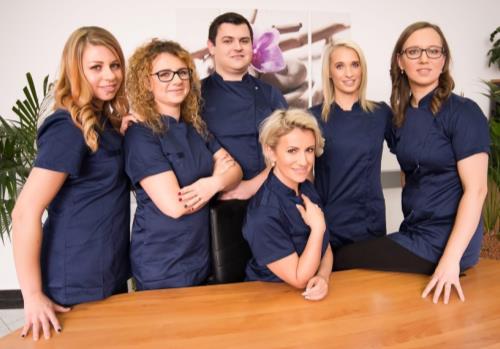
|
|
Social enterprise Center for Integrated Care, l. t. d., is an organization that has emerged in response to the needs of the elderly and of the assistance dependent people. Within social enterprise they combine health services, which represent a unique offer aimed at social benefits. This has resulted in integrated care in a multidisciplinary team that is user-oriented, highly professional, high-quality and affordable. It combines nursing and care services, home help, home-based pedicures, and physiotherapy and work therapy. So all that user needs to be able to stay in the home environment despite illness and weakness. In addition, they are also focused on preventive measures and support for the health of the population and activities for active life.
|
|
| |
 |
REGIONAL COORDINATORS UP TO DATE WITH SE DEVELOPMENT IN CROATIA
|
| |
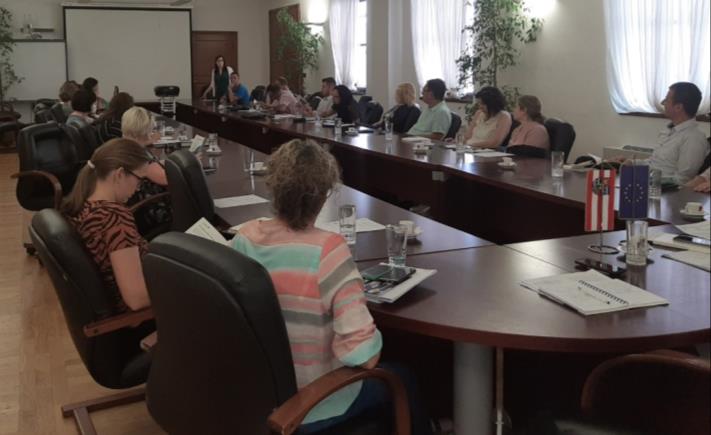 |
|
In June, Public institution REDEA held the last Regional Stakeholder Meeting in Varaždin, during the meeting of regional coordinators of North Croatia (from seven counties). Regional coordinators are in charge of regional development and they help counties with defining and implementing strategies and writing and implementing projects for regional and local government. They have a great influence on regional and local development and also great connections with non-profit associations.
We presented all the activities that were done within the project and emphasize a first pilot action of cooperation between social enterprises and socially responsible companies and SENSES e-learning platform that non-profit association can use for further development.
|
|
| |
 |
CLOSING CONFERENCE
|
| |
|
| |
 |
SENSES SOCIAL IMPACT AWARDS
|
| |
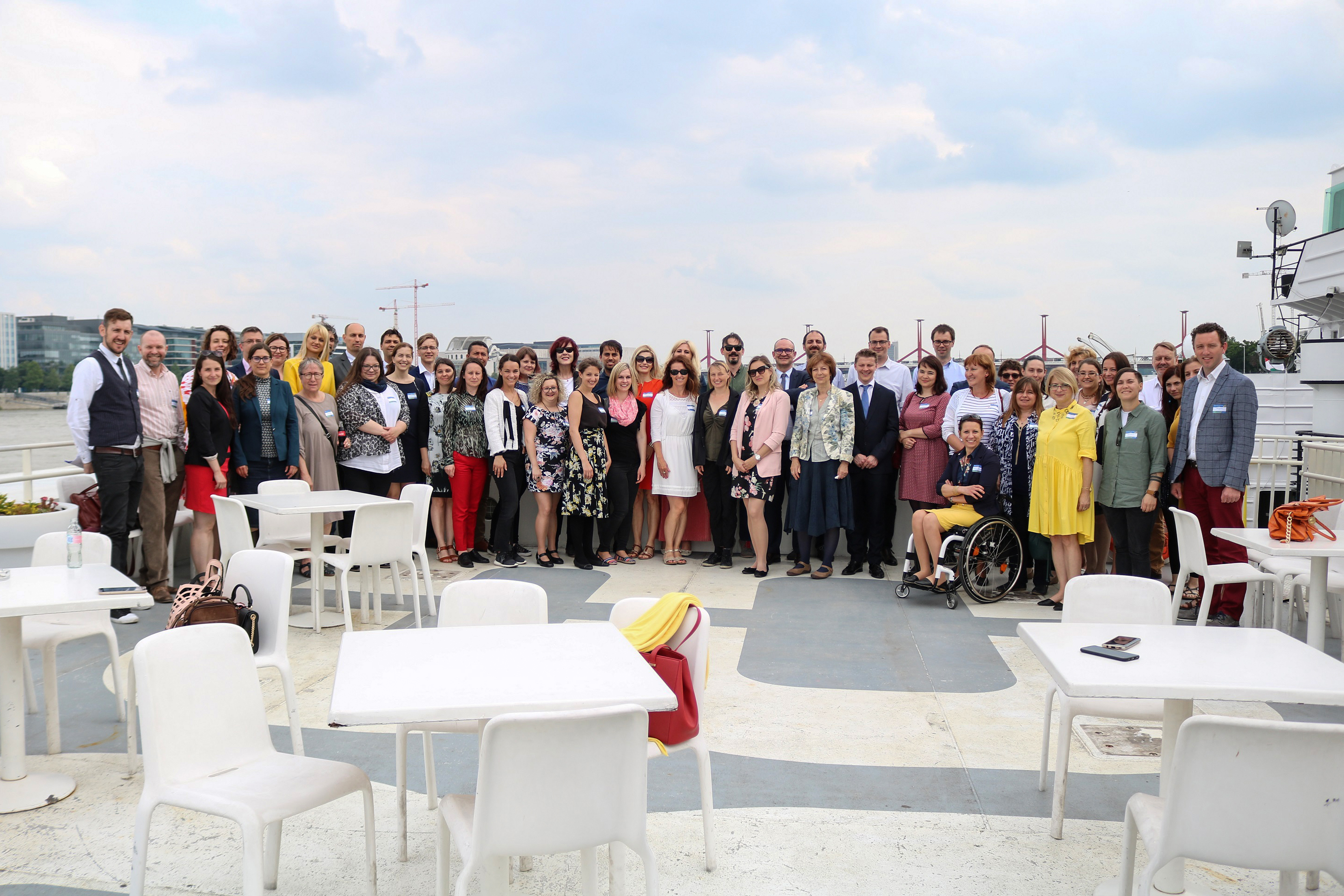 |
| |
|
We want to congratulate all representatives of SEs for great presentations on Closing conference! The jury had hard task of choosing the winners.
We are proudly announcing the winners of SENSES social impact awards:
Congratulations to all and thank you all for being a part of this amazing project!
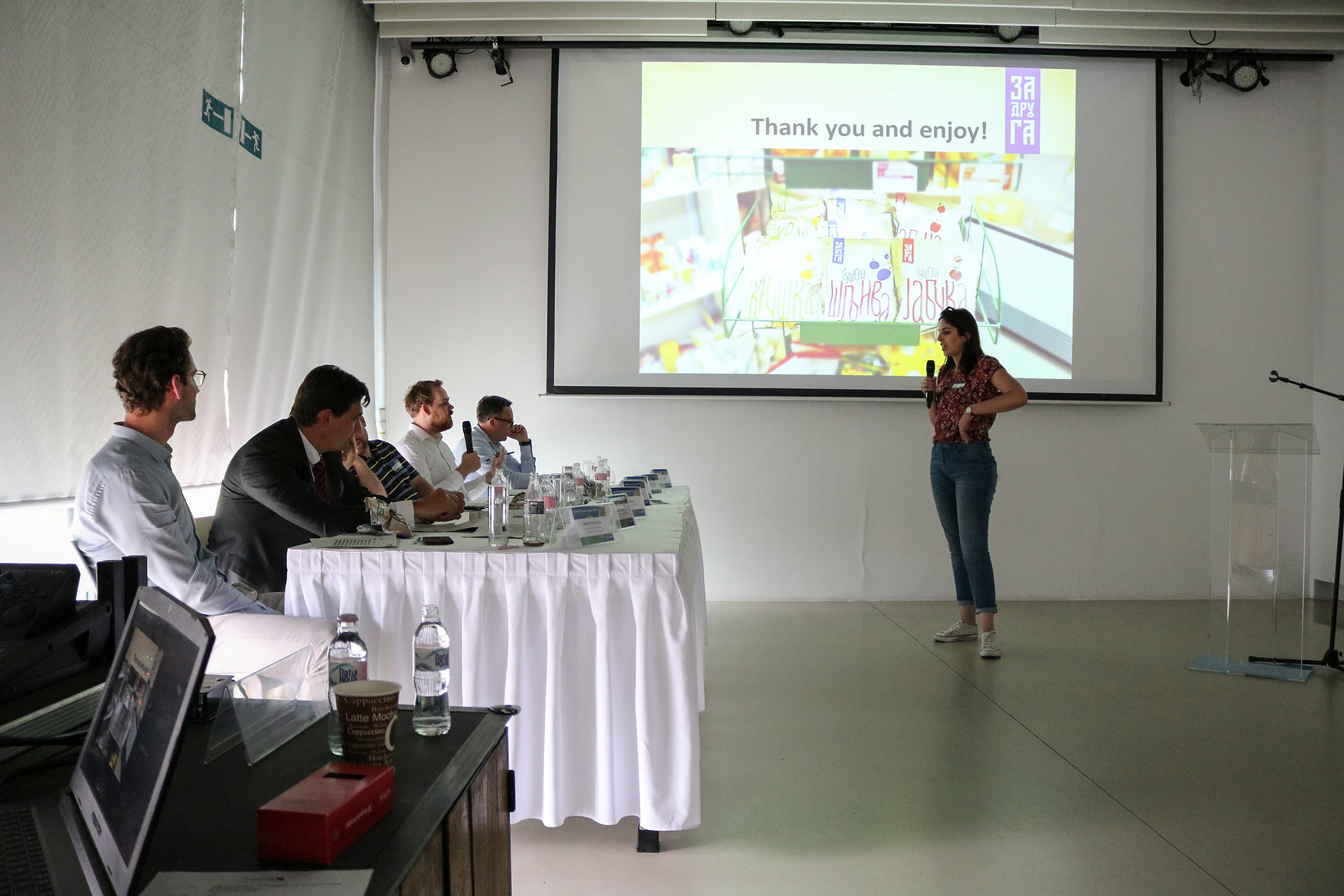 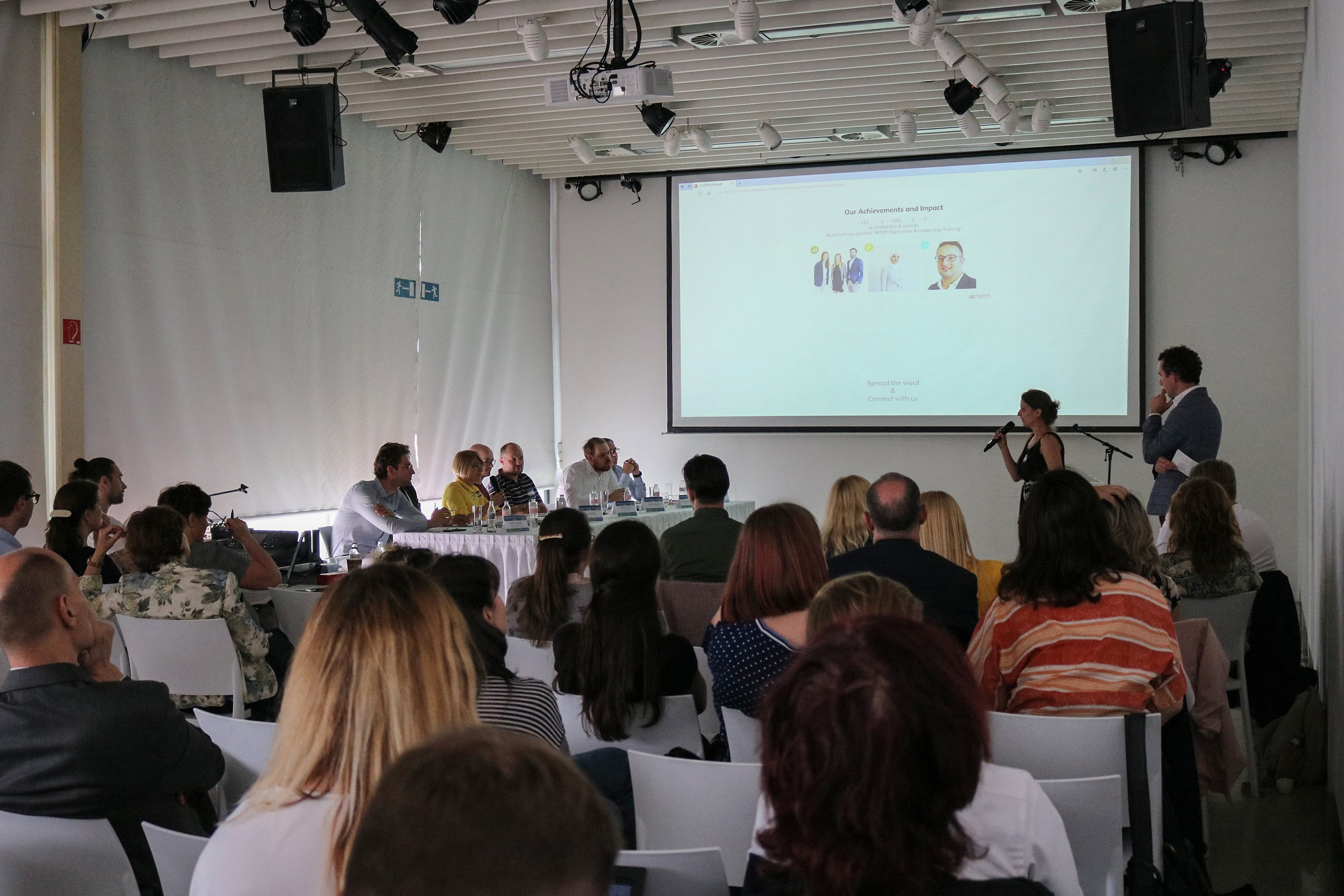
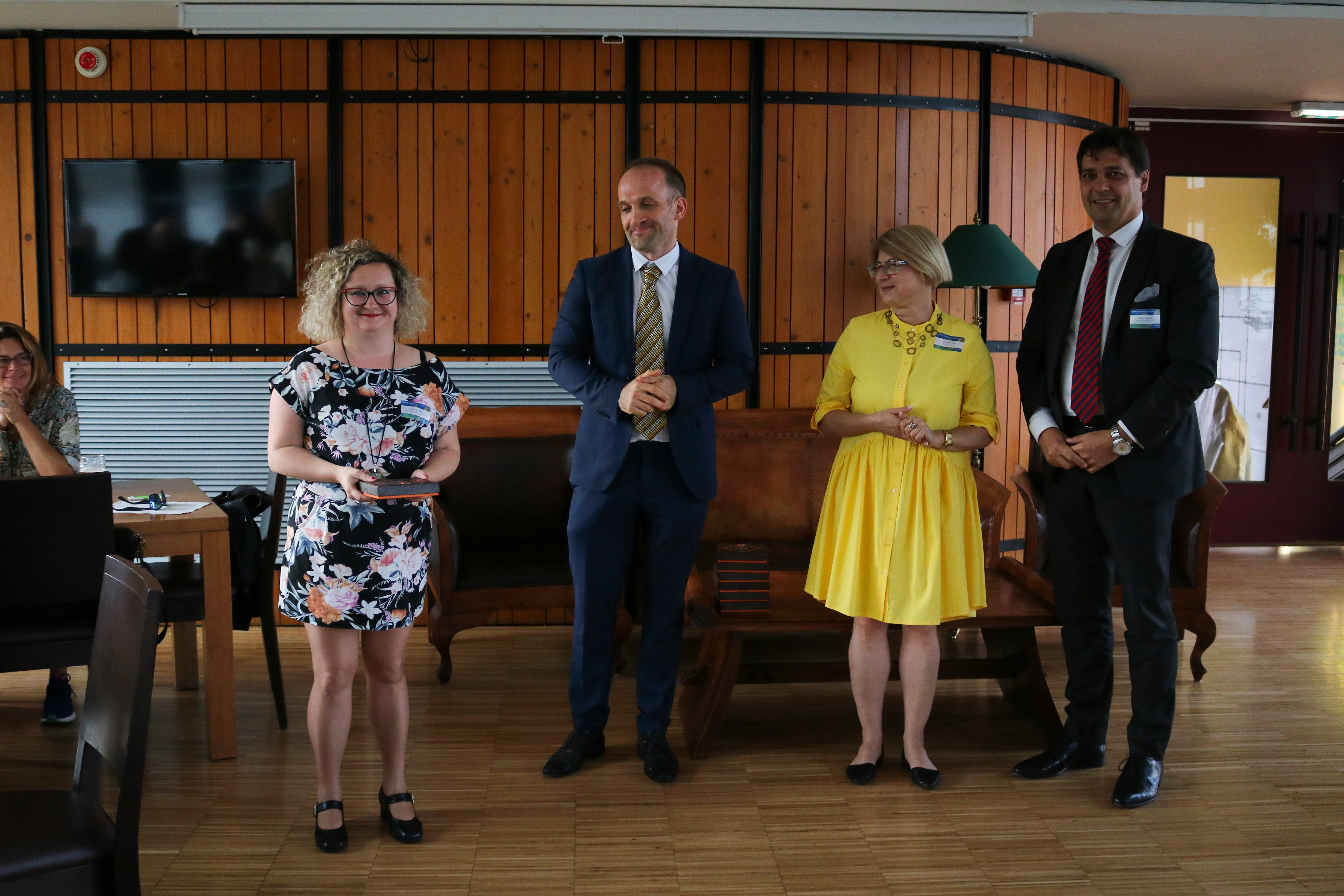
|
|
| |
 |
SENSES CONTACTS
|
| |
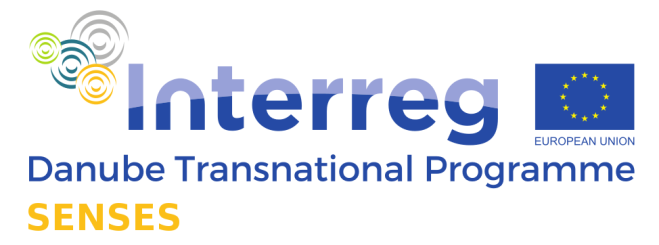 |
|
SENSES Lead Partner:
IFKA Public Benefit Non-profit Ltd. for the Development of Industry
1062 Budapest Andrássy út 100. Hungary
Web: http://www.ifka.hu
Tel.: +36 1 312 2213
E-mail: info@ifka.hu
Contact: Boglárka Barkó
Tel.: +36 30 634 0209
E-mail: barko@ifka.hu
|
|
|
|
|
| |
|
If you have received this newsletter, you have been included on one or more of the Danube Transnational Programme/projects postal mailing lists. We are committed to respect and protect the privacy of personal data collected. We regard your personal data as confidential information and will never communicate it to third parties. Your personal data are used mainly for the express purpose of receiving the newsletter. Your mailing details may also be used by the DTP and its projects for information and dissemination purposes strictly related to the programme and its projects. If you prefer not to receive more of this newsletter and your data not to be used for dissemination purposes, you can unsubscribe by sending a reply email.
|
|
|
|
|
|
